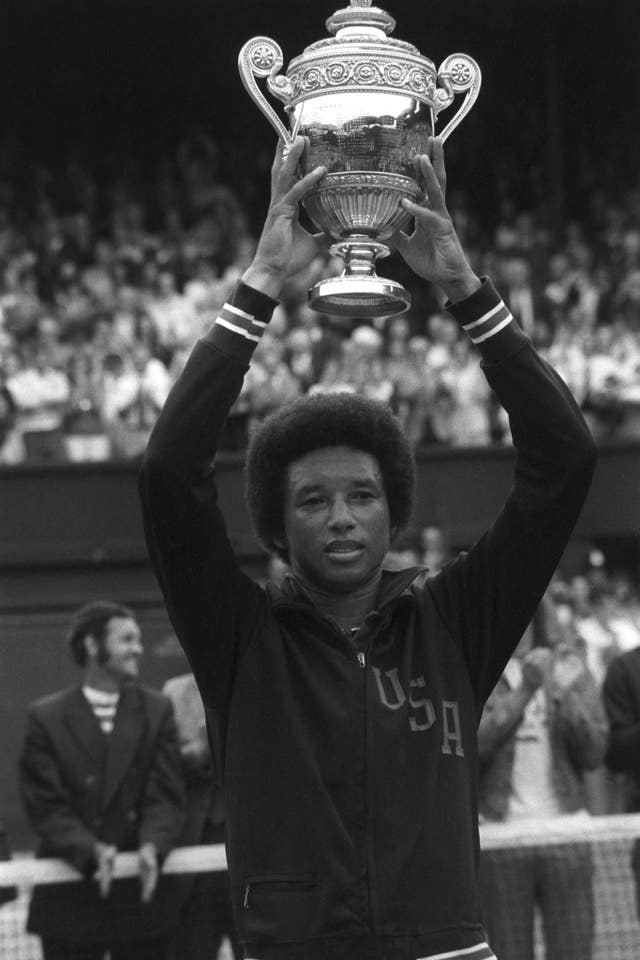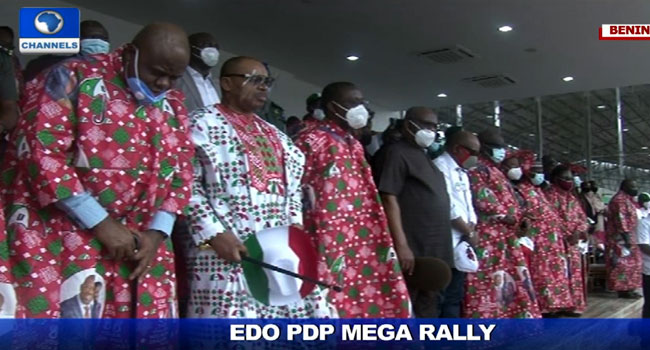Soda has been named public enemy number one when it comes to an easy change you can immediately make in hopes to lose weight and shed belly fat, so it’s only logical to assume if we all stay away from Coca-Cola, Sprite, and Dr. Pepper, the pounds will melt away. However, there’s one big problem: Very few of us are swapping soda for plain ol’ H2O. Instead, we’re looking to other beverages like juices and flavored waters to fill the void and while many of these soda alternatives market themselves as the “healthier choice,” that’s not always the case.
That’s why we ventured to beverage aisles, restaurants, and coffee shops near and far, with the goal of uncovering the unhealthiest drinks on the planet. Read on to get in the know, as we rounded up 50 popular drinks that are truly unhealthy. Be sure to toss out any junky drinks that are lingering in your kitchen! And while you’re at it, uncover What Happens to Your Body When You Drink a Smoothie Every Day.1
Cranberry Juice Cocktail

Did you know that cranberries are the fruit that is lowest in sugar? It’s true! So how can something so good for you turn bad? Easy. Let the juice industry get a hold of it. Because cranberries are so tart, Ocean Spray (the cranberry juice company) even wrote in an official letter to the FDA that, “cranberries … are naturally low in sugar, giving them a distinctly tart, astringent, and even unpalatable taste.” Because of their “unpalatable taste,” companies load up their cranberry juice with sugar—and lots of it. One cup of Ocean Spray cranberry juice cocktail contains 25 grams of sugar.
Drink This! Instead: The 100% Cranberry Juice from Ocean Spray isn’t much better (it has 28 grams of sugar per serving), the only difference is that cocktail is sweetened with cane sugar and the other is sweetened with fruit juices. To really cut back on the sweet stuff, we recommend diluting your serving with an equal amount of water.2
Chocolate Milk

Unless you’re downing a glass of chocolate milk as a post-workout drink after a heart-thumping, sweat-inducing workout, be aware that chocolate milk isn’t the innocuous lunchbox treat we came to love as kids. One 8-ounce bottle of Nesquik has 21 grams of sugar (plus artificial flavors).3
Orange Drinks

Just how Velveeta isn’t real cheese, Sunny D isn’t actual juice; it’s just a mix of water, high fructose corn syrup, and a few token dribbles of juice concentrates, canola oil, and chemicals. Their tagline may be “When life gives you oranges, make Sunny D,” but don’t be fooled, there’s hardly any oranges in the bottle—which is why it has zero nutritional benefits.4
Tomato Juice

Tomatoes may be an antioxidant-rich fruit, but any benefits they may provide to you are lost once they’re juiced and bottled. Regular tomato juices aren’t really flavorful on their own, so brands have to load them up with sodium—680 milligrams worth in every Campbell’s cup. That’s 30 percent of your daily value of sodium in just one glass.5
Shelf-Stable Cold-Pressed Juices

Why are cold-pressed juices so cherished? It’s because the cold-press process preserves the delicate, good-for-you antioxidants and micronutrients found the fruits and vegetables you’re pulverizing. Juices are already on our naughty list, as they tend to be high in sugar and low in digestion-slowing, blood-sugar-balancing fiber; however, juices get even worse when they’re shelf-stable. To make juices shelf-stable, companies pasteurize the product, which kills off any remaining semblance of a healthy drink.6
Chocolate Drinks

You might think, “hey, isn’t that the same as chocolate milk?” But the answer, dear reader, is no. Brands like Yoo-Hoo are not chocolate milk by the FDA’s definition of the term because it’s not really milk. The first ingredient listed is water, followed by high fructose corn syrup and then isolated whey protein (from milk). The rest of the shelf-stable drink is some cocoa powder, dry milk powder, artificial flavors, corn syrup solids, and palm oil. If you’re not turned off by the ingredients, maybe the 19 grams of corn syrup (in a smaller-than-average 6.5-ounce serving) will deter you from sipping one of these drinks again.7
Shelf-Stable Kombucha

Kombucha is a probiotic drink that’s teeming with live probiotic cultures that are beneficial for gut health. But if you buy your kombucha off a shelf—and not from the refrigerator—that’s a sign that what you’re about to drink isn’t the real stuff. These pasteurized drinks, like those from búcha, kill off all those naturally-occurring beneficial bacteria, and then further dilute the fermented drink by adding carbonated water.
Drink This! Instead: For the best brews, don’t miss our list of the best kombuchas.8
Sweet Tea

Word to the wise: if a drink has the word “sweet” in its name, it’s probably not going to be great for you. Some bottled sweet teas, like Gold Peak’s Sweet Tea, contain 48 grams of sugar (or 96 percent of your daily value of added sugars) in one bottle. Meanwhile, grab a Large Sweet Tea at Sonic, and expect to slurp down 78 grams of the sweet stuff. Your blood sugar will be through the roof after downing that.9
Supersized Coffees

While a cup or two of coffee can do your body good, you may want to think twice before sizing up to a large or indulging in a fourth cup of Joe. The reason: Doing so may make your bone brittle. “I try to avoid excessive caffeine,” says Dr. Mamta M. Mamik, Assistant Professor of Obstetrics, Gynecology and Reproductive Science at the Icahn School of Medicine at Mount Sinai. “An adult can safely consume up to 400 milligrams of caffeine a day (which is equivalent to four 8-ounce cups of coffee), but drinking any more than that can cause calcium excretion, which, over time, may lead to osteoporosis. Avoiding excess caffeine also helps to ward off uncomfortable withdrawal symptoms like lethargy, insomnia, headaches, and irritability,” she adds.10
Diet Soda

What do cancer-causing artificial colors, flame retardants, and fat-causing fake sugars all have in common? They’re all in your favorite diet fizzy drinks. Shove all that into a bottle laced with BPA, a chemical that’s been linked to obesity, and you’ve pretty much got one of the worst drinks ever. Nearly all popular diet sodas contain aspartame, an artificial sweetener that was initially developed to aid weight loss, but that has recently been found to have the opposite effect.
“Sugar substitutes like aspartame are designed to promote weight loss and decrease the incidence of metabolic syndrome, but a number of clinical and epidemiologic studies have suggested that these products don’t work very well and may actually make things worse,” says Richard Hodin, MD, lead author of a recent study on the matter. So what should you be sipping instead?
Drink This! Instead: Water is always a safe choice, as are these healthy soda alternatives.11
Ginger Beer

Sorry, Dark ‘n Stormy fans, but ginger beer isn’t good news for your waistline. In fact, it’s one of the most calorie-dense carbonated drinks on the market. An average 7-ounce serving has 171 calories, which brakes down to about 24 calories per ounce. For comparison, a typical vending machine soda has 14 calories per ounce. To learn more about how all your favorite colas stack up, don’t miss our report, most popular sodas ranked.
Drink This! Instead: Looking for ginger? Try ginger tea! Boil a cup of water with an inch of sliced ginger. You’ll reap the digestion-boosting benefits of ginger without the sugar.12
Bottled Smoothies

Busy mornings and grab-and-go breakfasts are practically synonymous—so it’s easy to see the appeal of store-bought smoothies. They seem like the best way to get what you crave in a pinch. But the timesaving drinks have a downside: Compared to fresh-made drinks, most of them fall short on nutrition and are so calorie- and sugar-filled that you’d have to spend hours on the treadmill to burn them off.
Drink This! Instead: Play it safe by blending up one of these best smoothie recipes for weight loss instead—all of them can be made in 5 minutes or less, compliments of Zero Belly Smoothies. Test panelists lost up to 16 pounds in 14 days!13
Pumpkin Spice Latte

That’s right—you’re not only basic, but you’re also sipping on an unhealthy drink. Starbucks may have pioneered the pumpkin spice latte, but they’re not the only culprit of these sugar bombs. Their grande size has a staggering 50 grams of sugar when you order it with whipped cream, and copycats from other brands aren’t much better.14
Piña Colada

If you like Piña Coladas, you must like sugar-heavy frozen cocktails that aren’t doing your waistline any favors. Piña Colada mixes, like those from Mr. and Mrs. T, have a gut-busting 42 grams of sugar in just 4 ounces. That’s the sugar equivalent of eating 9 Oreo cookies.15
ICEES

You know a beverage is bad if the first ingredient is high fructose corn syrup, followed by water. If you’re unfamiliar, ICEES are frozen, carbonated beverages in fruit and soda flavors. The infamous Blue Raspberry flavor has 24 grams of sugar in 6 fluid ounces (or 32 grams of sugar in the more standard 8-ounce serving).16
Root Beer Float

Soda is one thing, but then you go ahead and add a scoop of sugary ice cream on top? Thank you, next. This drink is best left for a unique treat. Let’s just say we’re not too upset that old-school Stewart’s drive-thrus aren’t around much anymore.17
Caffeinated Alcohol

If you’re feeling too tired to drink, take a hint from your body and maybe take the night off. What you don’t want to do is try to rally by combining caffeinated energy drinks with booze. According to the CDC, “when alcohol is mixed with caffeine, the caffeine can mask the depressant effects of alcohol, making drinkers feel more alert than they would otherwise. As a result, they may drink more alcohol and become more impaired than they realize, increasing the risk of alcohol-attributable harms.” That Red Bull and vodka doesn’t sound so good now, does it?18
Bubble Tea

Bubble tea is a popular drink that’s popping up in stores across the country. It’s typically a sweetened tea with popping tapioca balls, called “boba,” that rest on the bottom. While the good news is that each tea can be personalized to your taste, the default order is often high in sugar, which you should be cautious of if you’re already following a high-sugar diet. Too much sugar in your diet can lead to metabolic disorders and weight gain.
Bloody Marys

They might be a brunch staple, but beware of making your hair of the dog a Bloody Mary. Like tomato juice, bloodies are often soaked in sodium, climbing upwards of 1,000 milligrams per large glass. Because hangover symptoms are often amplified when you’re dehydrated, consuming a sodium-heavy drink isn’t going to do your body many favors.20
Probiotic-Infused Drinks

High-sugar diets are consistently associated with a high ratio of bad bacteria to good bacteria, as shown in a Neuroscience study. That means that if you want to improve your gut health, you’ll have to cut back on sugar first, as well as add probiotics to your diet. Unfortunately, many probiotic drinks are actually loaded with sugars, which defeats the benefits of probiotics. For example, a single serving of Tropicana Essentials Pineapple Mango Probiotics juice has a staggering 29 grams of sugar. And while that sugar isn’t from any added sources, fruit sugar will act the same way as cane sugar in your body.
Drink This! Instead: If you want probiotics, your best bet is to get them from natural sources such as kombucha, yogurt, sauerkraut, or kimchi.21
Long Island Iced Tea

If you ever try to read a recipe for a Long Island Iced Tea, you’ll soon realize it’s just a list of every alcohol you find on your bar cart: vodka, tequila, light rum, triple sec, and gin. It’s all topped off with a splash of soda (not tea). And while we’re typically concerned with the amount of sugar in soda, in this case, it’s really just a splash. Long Island Iced Teas are on our list of unhealthiest drinks because the glass gives the appearance that you’re drinking tea when you’re really just drinking a tall pint of alcohol, making it easier to overdo it.22
Apple Cider

Nothing says fall like a doughnut and apple cider, right? The only problem is that this ritual involves sipping on at least 28 grams of sugar—and that doesn’t include the sugar-dipped doughnut. Like our usual advice, limit your serving size of cider to half a cup or dilute it. Better yet, grab an apple and munch on that instead. The water and fiber from the whole fruit will help keep your blood sugar levels stable, keeping you fuller longer.23
Bottled or Canned Coffee

Allow us to state the obvious: you should always read the label of any bottled drink before you buy it. In the case of cold-brew coffees, many companies will load up their bottles with milk and sugar to cut the bitterness of the antioxidant-rich brew. What you’re left with is a bottle of 20 grams of added sugars, mostly milk, and a little bit of coffee.
Drink This! Instead: To find our favorite bottled cold brew, check out our guide to the best and worst bottled coffees.24
Sangria

While drinking red wine as part of a Mediterranean diet has been associated with a reduced risk of cardiovascular disease and some cancers, according to an Advances in Nutrition study, don’t expect to get the same benefits if you’re sipping on sangria. This fruity beverage is a classic summer hit, but the added sugar isn’t going to do your next-day hangover any favors.
Drink This! Instead: Forget the extra sugar and opt for one of these wines for weight loss.25
Thai Iced Tea

We’re big fans of tea, but this drink isn’t what we had in mind when we touted the benefits of an antioxidant-rich beverage. Thai iced teas are typically sweetened with condensed milk, which may taste great, but just a quarter cup of it contains a whopping 44 grams of sugar.26
Beverage Concentrates

Considering most of these beverage-flavoring agents are made with sketchy artificial sweeteners like acesulfame and sucralose, we advise you to stay away. While acesulfame is believed to have carcinogenic properties, sucralose is a sweetener that’s been found to mess with your body’s satiety signals. What’s more, they’re filled with potentially harmful dyes like red 40 and yellow 6, which are contaminated with known carcinogens—no wonder they’re considered to be some of the 23 Worst Food Additives in America!27
Vitamin-Enhanced Waters

While they may have “water” in their name, these bottled beverages are 120 calories each, and every single one of those calories comes from sugar. And it’s not just a little bit of sugar, either. There are 31 grams in a 20-ounce bottle of Vitaminwater, which is 7 and ¾ teaspoons of the sweet stuff.
Drink This! Instead: If you want to infuse some flavor and nutrients into your water, ditch the bottled stuff and make one of these 50 Best Detox Waters for Fat Burning and Weight Loss instead.28
Fast Food Iced Tea

Spiked with propylene glycol alginate, fast food iced tea is a definite no-go in our book! Propylene glycol alginate is a food thickener, stabilizer, and emulsifier that can cause cardiovascular or neurotoxic issues. (It’s also not too far off from propylene glycol—also known as automobile antifreeze.) But that doesn’t stop Dunkin’ Donuts and other fast food joints from adding it into their iced tea.
Drink This! Instead: Our suggestion: Whip up a pitcher of the stuff at home, using one of these best teas for weight loss.29
Liquid Coffee Creamer

Coffee creamer and sunblock have more in common that you might think. They both contain titanium dioxide, an ultraviolet radiation blocker that doubles as a whitening agent. The additive has been proven to cause liver and tissue damage in mice, and may also have health implications in humans, according to a recent review of the chemical. Coffee creamer is also typically sprinkled with trans fats, often hiding under its lesser-known name: mono and diglycerides. Aside from its connection to compromised heart health, the ingredient that has been shown to diminish memory in adults under 45 years old. Many brands also use TBHQ in their recipes, which is a form of butane. Yuck!
Drink This! Instead: So what should you put into your morning cup instead? Plain ol’ cow’s milk, or if you’re looking for a hint of flavor, stick with a tablespoon of one of Coffee Mate’s Natural Bliss creamers. Unlike conventional brands, they’re all made from nonfat milk, heavy cream, sugar and natural flavors.30
Margarita

While whipping up a frozen marg at home isn’t quite as bad as getting it from a bar (400 calories vs. 700), it’s still the worst cocktail for your waistline. Made with a sugar-spiked neon mix and tequila, the summer staple will overload your system with more sugar than you’d find in nine Dunkin’ Donuts Apple n’ Spice Donuts! Other frozen beverages aren’t much better, either. The average strawberry daiquiri, for example, has about 280 calories and 44 grams of sugar per serving. Not to mention, it’s also 99 percent high fructose corn syrup.
Drink This! Instead: Switch to a glass of bubbly with muddled strawberries and lemon slices to get your fruity fix for a fraction of the waist-widening calories.31
Orange Juice

Sure, it’s natural and overflowing with vitamin C, but it’s loaded with sugar—and totally void of any nutrients like fiber or protein to help slow the sugar spike. An average glass packs 36 grams of sugar —or about what you’d get from popping 4 Krispy Kreme glazed donuts into a blender and hitting frappe. What’s more, most of the sweetness in orange juice comes from fructose, a type of sugar associated with the development of belly fat.
Drink This! Instead: A better drink for citrus lovers? Water flavored with fresh slices of oranges, lemon, and grapefruit. For added benefits, keep the peels on. Citrus peels contain the antioxidant d-limonene, a powerful compound that helps flush out stored visceral fat.32
Conventional Skim Milk

While skim milk may be lowest in calories, many of its vitamins are fat-soluble, which means you won’t get all the benefits of the alphabetical nutrients listed on your cereal box unless you opt for at least 1%. Why’s it important to opt for grass-fed, organic cartons over the conventional stuff? Not only does it taste better and stay fresh longer, when the herds graze on grass instead of feed, but their milk also has higher levels of omega-3s and CLA (conjugated linoleic acid), a nutrient that boosts immunity, improves bone mass, and even reduce body fat—gotta love that!
Drink This! Instead: To learn more about the best cereal and coffee additions for your health, don’t miss our report, best and worst milk and milk alternatives.33
Canned Energy Drinks

These overpriced chemical cocktails may give you a surge of energy, but they’re riddled with harmful sweeteners (many of which made our list of these Best and Worst Popular Sweeteners) and are even more corrosive to your teeth than regular soda. Just say no to these icky drinks!34
Energy Shots

The majority of these little shooters are made up of chemicals, one of which is sodium benzoate. In one study of the effects of sodium benzoate on living yeast cells, researchers found benzoate to be damaging to mitochondria, an important area of DNA. Eek! What’s more, these bad boys rely on waist-widening artificial sweeteners to achieve their sweet flavor.
Drink This! Instead: To amp up your energy the healthy way, stock your kitchen with these healthy energy drinks.35
Fancy Coffee Drinks

In terms of sugar, a 12-ounce can of Coke = 16 Hershey Kisses. Think that’s bad? The majority of your favorite coffee drinks are far sweeter. Take Dunkin’s frozen french vanilla swirl coffee Coolatta, for example. Even if you request it with skim milk, it still packs 300 calories and 70 grams of sugar—in a small! Warm drinks are just as bad. McDonald’s McCafe mocha has 340 calories and 42 grams of the sweet stuff while Starbucks’ eggnog latte has 450 calories and 52 grams of sugar. And in case you were curious, that’s the equivalent of 16 mini candy canes! To see how even more specialty drinks stack up in terms of nutrition (so you know which ones to stay away from!), don’t miss our report coffee drinks with more sugar than a soda.36
Slushies

You probably already know that slushies were sugar mines, but we bet you had no clue they’re often filled with mold! Totally gross, we know, yet totally true! According to numerous fast food and convenience shop workers, the machines that store and blend slushies are rarely—if ever—cleaned. “The amount of mold in those machines would crush your childhood into a pulp,” a former gas station worker admitted on Reddit. If the calorie and sky-high sugar counts weren’t enough to turn you off of the sips, maybe those bits of information will.
Drink This! Instead: To whip up a homemade version at home, freeze, then blend watermelon chunks into a sweet and satisfying slushy.37
Sports Drinks

Whoever invented the Gatorade Dunk—the tradition in which winning sports teams dump coolers of the stuff on their coaches—was really on to something. One scan of the nutrition label and it’s clear: The sports drink is better off seeping into the sidelines than your stomach. (Yes, even their reformulated ones.) Sure, it provides critical post-workout electrolytes, like sodium and potassium, but it also serves up a hearty helping of calories and sugar. In fact, there are 56 grams of the sweet stuff (which is more than a day’s worth) in a 32-ounce bottle. What’s more, the beverage is teeming with stomach-churning additives like wood rosin and artificial dyes.
Drink This! Instead: A better—and safer—way to replenish the electrolytes and water lost after a tough workout: coconut water or any of these healthy sports drinks.38
Milkshakes

A long time ago, milkshakes had two ingredients: milk and ice cream. But as time went on, restaurants starting filling their shakes with everything from candy to chemicals, transforming them into potentially dangerous 1,000+ calorie concoctions! In fact, some of the lowest-cal restaurant milkshakes still have over 800 calories—in a small!
Drink This! Instead: If you want something cold and sweet, you’re better off indulging in a scoop or two of actual ice cream or making a chocolate- or peanut butter-filled smoothie.39
Conventional Bottled Nutrition Shakes

The bulk of bottled protein shakes are bad news for your body—despite the fact that are they are advertised as being the exact opposite. If they’re not sugar mines, they’re doused with artificial sugar and likely colored with carcinogen-containing chemicals, too.
Drink This! Instead: Are there grab-and-go protein shakes that contain no artificial sweeteners, high-fructose corn syrup, or hydrogenated oils? Sure! (And you can find them in our report on the best and worst protein shakes.)40
Bottled Water

The water isn’t the problem here; it’s the BPA in the bottle. BPA is a hormone-mimicking chemical found in nearly all food packaging plastics, and it’s potentially bad news. According to some pools of research, the chemical may promote cancer and render people infertile. To stay hydrated on the go, buy a BPA-free refillable bottle.
Drink This! Instead: We’re big fans of S’well bottles, which come in a wide array of fashionable patterns and colors.41
Cola

Eat This, Not That! has been after Coca-Cola’s chemical- and sugar-filled colas since our inception. Not only do they contribute to weight gain and obesity-related diseases like diabetes, but their acidity is also bad news for your digestive system and tooth enamel. The bad news keeps on coming: The caramel color in soda contains an artificially-created phosphorus that can be bad for long-term bone health, cautions Isabel Smith, MS, RD, CDN, of Isabel Smith Nutrition. Plus, caramel color has been found to contain carcinogens, according to Johns Hopkins researchers.42
Fruity Sodas

It may have images of brightly colored fruit on the can, but that doesn’t mean it carries any health benefits or actual fruit. What they do contain, however, is as much sugar as three Snickers Ice Cream bars and stomach-churning chemicals like red 40, sodium benzoate, and BVO, a chemical used in rocket fuel and flame retardants that can negatively affect thyroid hormones. Curious what other strange things may be messing with your body’s ability to trim down? Don’t miss our special report, ways you messed up your metabolism today.43
Sweetened Milk Alternatives

Sweetened milk alternatives aren’t just spiked with additives like stomach-irritating carrageenan, they’re typically low in protein and a concentrated source of sugar. (A combination that will leave your stomach rumbling!) An 8-ounce serving can easily carry as much of the sweet stuff as a half a can of soda, none of which is naturally occurring. Cow’s milk, on the other hand, gets all of its sweetness from naturally occurring lactose, a sugar present in milk.44
Bottled Alcoholic Mixers

Most people mix up a cocktail to boost their mood and cut loose. But if you typically combine the stiff stuff with a bottled mixer you may be doing more hard them good—and not only when it comes to your waistline. “[Cocktail mixers are] a lot like soda drinks when it comes to their sugar content,” celebrity nutritionist and health consultant Mikaela Reuben tells us. “The effect of their high sugar content is the same; the sugars will be released into the bloodstream, allowing an energy boost to take place but ultimately ends in a low point, leaving one to feel fatigued, irritable, and depressed.”
Drink This! Instead: To mix a better-for-you cocktail, stick with things like flavored seltzer and freshly squeezed lime juice. Prefer something store-bought? These healthy low-calorie mixers are about to become your new favorites.45
Eggnog

With or without added liquor, it shouldn’t come as a surprise that traditional eggnog is on the “naughty” list: the primary ingredients are milk, cream, and eggs. To save 200 calories make yours with organic unsweetened almond milk instead of milk and cream. For even more ways to nix unnecessary cals from your diet, don’t miss these ways to cut calories.46
Commercial Hot Cocoa

While it’s true that packets of hot cocoa are all “meh” in terms of nutrition, the kind you get from restaurants and coffee joints are far worse. A 16-ounce Starbucks hot chocolate with 2% milk, for example, has half a day’s saturated fat, 400 calories, and 43 grams of sugar which is two and half times as much as you’ll find in the brand’s make-at-home packets.
Drink This! Instead: Because no matter what we say you’ll likely still indulge in the drink on occasion, at least use our trusty report, best and worst hot cocoa mixes so you can make an educated choice about your indulgent drink.47
Mudslides

Vodka, Kahlua, Baileys Irish Cream, milk, and chocolate syrup, combine together to create this fatty concoction that’s bound to not only leave you “chocolate wasted,” but severely bloated, too. An average cocktail has a staggering 750 calories!48
Lemonade

For many of us, lemonade evokes memories of cute kids sitting at a stand the end of their driveway. And while the littles pushing the drink may be innocent enough, the beverage itself is not. Teaming with 120 calories and nearly 30 grams of sugar per cup, the only thing we like about this drink is it’s fairly harmless list of ingredients. While water, sugar, and lemon juice won’t make you sick, drinking it in excess could bring on a metabolic condition that will.
Drink This! Instead: Throw a couple of lemon slides in some water for a refreshing sip.49
Certain Bottled Teas

In its purest form tea is one of the best weight loss allies you’ll find. It contains antioxidants which have been found to help rev your metabolism, block the formation of new fat cells, fight off diseases, and lower risk of stroke. But not all teas are created equal—especially those sold in bottles. In fact, a recent study found that you’d have to drink 20 bottles of store-bought tea to get the same amount of antioxidants present in just one home-brewed cup. Plus, the bulk of the bottles brews get their brown hue from caramel color (instead of actual tea) and are packed with more sugar than you’d find in a handful of Chips Ahoy cookies.
Drink This! Instead: To learn which ones are safe to sip and which are better to skip, skim our report, worst bottled tea products.50
Powdered Fruit Drinks

Tang, Kool-Aid, and other drink powders are little more than a mix of sugar and artificial coloring. If you wouldn’t pour food dye and cups of sugar straight into your mouth, you’re better off saying “no” to these waist-widening drinks.
eatthis












